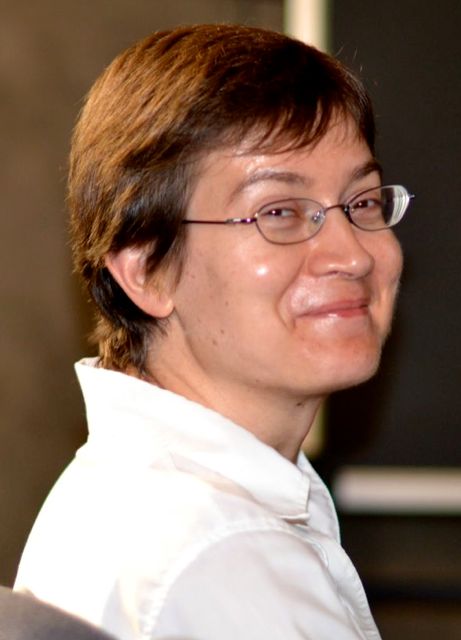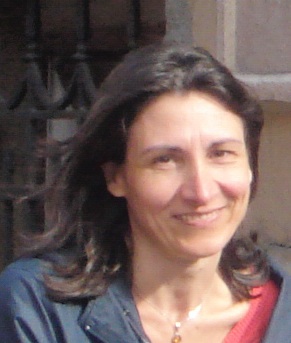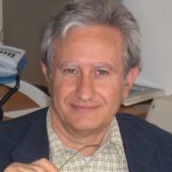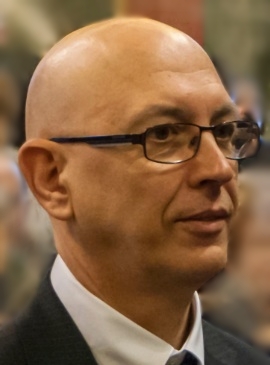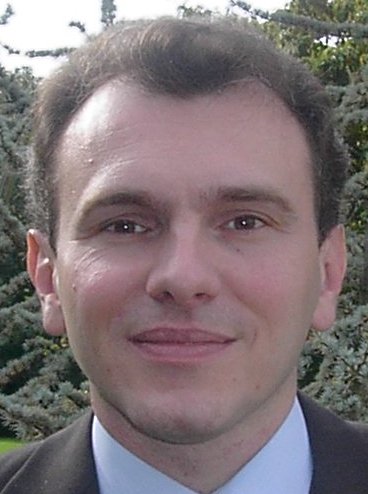Studying at the University of Verona
Here you can find information on the organisational aspects of the Programme, lecture timetables, learning activities and useful contact details for your time at the University, from enrolment to graduation.
Academic calendar
The academic calendar shows the deadlines and scheduled events that are relevant to students, teaching and technical-administrative staff of the University. Public holidays and University closures are also indicated. The academic year normally begins on 1 October each year and ends on 30 September of the following year.
Course calendar
The Academic Calendar sets out the degree programme lecture and exam timetables, as well as the relevant university closure dates..
| Period | From | To |
|---|---|---|
| 1° Q - 2° anno e successivi | Sep 27, 2004 | Nov 26, 2004 |
| 2° Q | Jan 10, 2005 | Mar 11, 2005 |
| 3° Q | Apr 11, 2005 | Jun 10, 2005 |
| Session | From | To |
|---|---|---|
| 1st exam session | Dec 6, 2004 | Dec 17, 2004 |
| 2nd exam session | Mar 21, 2005 | Apr 8, 2005 |
| Summer term | Jun 20, 2005 | Jul 15, 2005 |
| Autumn term | Sep 5, 2005 | Sep 30, 2005 |
| Session | From | To |
|---|---|---|
| Extra term | Dec 15, 2004 | Dec 15, 2004 |
| Winter term | Mar 15, 2005 | Mar 15, 2005 |
| Summer term | Jul 20, 2005 | Jul 20, 2005 |
| Autumn term | Sep 21, 2005 | Sep 21, 2005 |
| Period | From | To |
|---|---|---|
| All Saints Day | Nov 1, 2004 | Nov 1, 2004 |
| Immaculate Conception Day | Dec 8, 2004 | Dec 8, 2004 |
| Christmas holidays | Dec 22, 2004 | Jan 6, 2005 |
| Easter holidays | Mar 24, 2005 | Mar 29, 2005 |
| Labour Day | May 1, 2005 | May 1, 2005 |
| Patron Saint's Day S. Zeno | May 21, 2005 | May 21, 2005 |
| The Day of the Republic | Jun 2, 2005 | Jun 2, 2005 |
| Summer holidays | Jul 25, 2005 | Aug 31, 2005 |
Exam calendar
Exam dates and rounds are managed by the relevant Science and Engineering Teaching and Student Services Unit.
To view all the exam sessions available, please use the Exam dashboard on ESSE3.
If you forgot your login details or have problems logging in, please contact the relevant IT HelpDesk, or check the login details recovery web page.
Academic staff

Squassina Marco
 marco.squassina@univr.it
marco.squassina@univr.it
 +39 045 802 7913
+39 045 802 7913
 luca.vigano@univr.it
luca.vigano@univr.it
Study Plan
The Study Plan includes all modules, teaching and learning activities that each student will need to undertake during their time at the University.
Please select your Study Plan based on your enrollment year.
3° Year activated in the A.Y. 2006/2007
| Modules | Credits | TAF | SSD |
|---|
4° Year activated in the A.Y. 2007/2008
| Modules | Credits | TAF | SSD |
|---|
5° Year activated in the A.Y. 2008/2009
| Modules | Credits | TAF | SSD |
|---|
| Modules | Credits | TAF | SSD |
|---|
| Modules | Credits | TAF | SSD |
|---|
| Modules | Credits | TAF | SSD |
|---|
| Modules | Credits | TAF | SSD |
|---|
Legend | Type of training activity (TTA)
TAF (Type of Educational Activity) All courses and activities are classified into different types of educational activities, indicated by a letter.
Automated Deduction (2007/2008)
Teaching code
4S00050
Teacher
Credits
5
Also offered in courses:
- Automated Deduction of the course Masters in Intelligent and Multimedia Systems
Language
Italian
Scientific Disciplinary Sector (SSD)
INF/01 - INFORMATICS
Period
2° Q dal Jan 10, 2008 al Mar 12, 2008.
Learning outcomes
The class presents the central problems in automated reasoning and a selection of the most important theoretical methods and state-of-the-art systems to approach them. The student learns how to design, apply and evaluate methods and systems for automated reasoning. After the course, the student is ready to work on an MS thesis in the area of automated reasoning. Pre-requisites: undergraduate-level knowledge of logic and algorithms.
Program
Automated reasoning: proof procedures as semi-decision procedures for validity or theorem-proving strategies. Inference system + search plan = theorem-proving strategy. The Herbrand theorem. Ordering-based strategies. Expansion inference rules: resolution, paramodulation, superposition. Contraction inference rules: subsumption, simplification by rewriting. Search plans. Algorithmic reasoning: proof procedures as decision procedures for satisfiability. First-order theories and decidable problems in first-order theories. Decision procedures and their combination. When theorem-proving strategies are decision procedures. Design and use of automated reasoners.
| Author | Title | Publishing house | Year | ISBN | Notes |
|---|---|---|---|---|---|
| Ricardo Caferra, Alexander Leitsch, Nicolas Peltier | Automated Model Building (Edizione 1) | Kluwer Academic Publishers | 2004 | 1-4020-265 | Altro libro di riferimento. |
| Rolf Socher-Ambrosius, Patricia Johann | Deduction Systems (Edizione 1) | Springer Verlag | 1997 | 0387948473 | Testo adottato. |
| Raymond M. Smullyan | First-order logic | Dover Publications | 1995 | 0486683702 | Altro libro di riferimento. |
| Allan Ramsay | Formal Methods in Artificial Intelligence (Edizione 1) | Cambridge University Press | 1989 | 0521424216 | Altro libro di riferimento. |
| Chin-Liang Chang, Richard Char-Tung Lee | Symbolic Logic and Mechanical Theorem Proving (Edizione 1) | Academic Press | 1973 | 0121703509 | Testo adottato. |
| Aaron R. Bradley, Zohar Manna | The Calculus of Computation - Decision Procedures with Applications to Verification (Edizione 1) | Springer | 2007 | 9783540741 | Testo adottato. |
| Alexander Leitsch | The Resolution Calculus (Edizione 1) | Springer | 1997 | 3540618821 | Altro libro di riferimento. |
Examination Methods
Mode with partial tests:
this mode applies only to the exam right at the end of the class, that is for the exam session of March-April, since the class is scheduled in the II term. In this mode, the exam consists of a written 2h test (C) and an individual project (P) to be developed either at home or in the lab during the course. The project comprises writing a short project report (max 4 pages). The final grade is given by 50% C + 50% P. After the first exam session since the end of classes, P and C are no longer valid. Those who choose to take the exam in this mode are supposed to register for the March-April session.
Single-test mode:
in this mode, the exam consists of a single written test, whose difficulty is equivalent to that of C + P, and whose grade determines alone the final grade. This mode applies to all exam sessions. However, if a student takes test E, the grade given by 50% C + 50% P is lost.
Notes:
the partial test C will be administered in the same date, time and place as test E of the March-April session (of course contents and duration of the two tests will be different).
Project P will be submitted electronically, except for the written report that will have to be handed-in before taking the partial test C.
Registration:
for each session the date of the exam is given by the date of the written test (E); to register it is sufficient to register for the written test. Students are not allowed to "reject" grades and all grades will be registered. Students dissatisfied with their performance can withdraw: in order to withdraw it is sufficient not to hand-in C or E.
Type D and Type F activities
Documents and news
-
 Brochure piano didattico
(pdf, it, 10 KB, 11/08/04)
Brochure piano didattico
(pdf, it, 10 KB, 11/08/04)
-
 Manifesto del corso di studi
(pdf, it, 18 KB, 06/10/04)
Manifesto del corso di studi
(pdf, it, 18 KB, 06/10/04)
Modules not yet included
Career prospects
Module/Programme news
News for students
There you will find information, resources and services useful during your time at the University (Student’s exam record, your study plan on ESSE3, Distance Learning courses, university email account, office forms, administrative procedures, etc.). You can log into MyUnivr with your GIA login details: only in this way will you be able to receive notification of all the notices from your teachers and your secretariat via email and soon also via the Univr app.

